Robert Charles Wilson’s novel Spin was a worthy winner of the 2006 Hugo Award for best novel. Spin also won Israel’s Geffen Award for Best Translated SF Novel, France’s Grand Prix de l’Imaginaire and Japan’s Seiun Award. It was followed by sequels Axis and Vortex. The following review is a revised version of a piece originally written for Vector. At the time I concluded that ‘I will certainly feel fortunate to read a better new novel of any sort this year.’ And almost 10 years on Spin remains one of the finest hard SF novels of the new millennium.
*
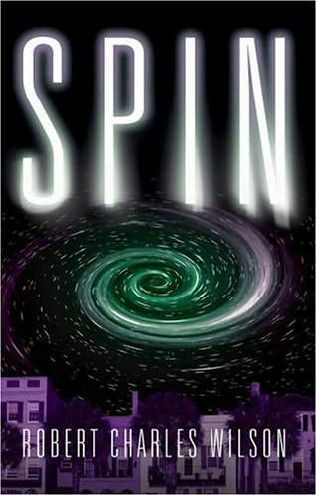 One night a few years from now the stars go out. Or so it appears to three young people in the garden of The Big House in Washington D.C. Jason and Diane Lawton are 14. Their father is both a pioneer in a fledgling communications technology company and junior Washington power player. Together with Tyler, the son of Lawton’s former business partner, the trio are inseparable.
One night a few years from now the stars go out. Or so it appears to three young people in the garden of The Big House in Washington D.C. Jason and Diane Lawton are 14. Their father is both a pioneer in a fledgling communications technology company and junior Washington power player. Together with Tyler, the son of Lawton’s former business partner, the trio are inseparable.
Narrated by Tyler, Spin chronicles the complex relationship between the three young people over the next several decades and three billion years. The stars haven’t gone out. Rather, paralleling Greg Egan’s Quarantine, the Earth has been enclosed. The enclosure comes to be known as the Spin; the barrier is permeable to sunlight, which is being processed and filtered to create a perfect image of the real sun. And solar radiation has to be filtered because in the universe outside time is flowing 100 million times faster than on Earth.The Spin can only be the deliberate action of a vastly advanced and powerful intelligence, the evidence of such entities being entirely implicit, such that they are dubbed the ‘Hypotheticals’.
So the scene is set for a hard science fiction story almost as much about faith as science, for might not the ‘Hypothetical’ intelligence be God, the world in the End Times on the edge of Apocalypse? Tyler becomes a doctor and is sufficiently an everyman to provide a clear reference point for the reader, the still centre of the spinning world. Tyler loves Diane, and his feelings are not unreciprocated, but Diane embraces New Kingdom, an emergent hedonistic breakaway from Christianity, marries and moves far away. Jason proves to be a scientific genius, and becomes a leading figure in the US government’s investigation into the Spin and the Hypotheticals, devising an ingenious plan taking advantage of the time differential between the Earth and the universe beyond the barrier to terraform and colonise Mars. While maintaining an intermittent, distant friendship with the faith-driven Diane, Tyler becomes the personal physician to the scientifically motivated Jason, the three friends presenting a world in microcosm, so much so that were the characters and their struggles not so realistically depicted what follows might be dismissed as merely didactic.
As the years pass the expanding sun beyond the Spin barrier promises to gradually render the Earth uninhabitable, civilisation begins to decay and Jason is beset by a progressive disease extrapolated from MS. This personal epic is richly imaged and laced with a powerful sense of impending fate (complete with explicit references to Neville Shute’s On The Beach).
Occupying perhaps one seventh of the page count are intriguing intermittent chapters set a little further into the future: Tyler and Diane are fugitives from the American administration, hiding in Indonesia, where Tyler injects himself with a drug the benefits of which are uncertain, and which might destroy his memory. These sections are, probably entirely coincidentally, reminiscent of Christopher Priest’s The Affirmation.
Spin is the fifth novel I have read by Robert Charles Wilson, and by far the best. The book is a marvel of construction, the diverse parts brought together with the skill of a master so that the whole resonates with rare complexity and beauty. It is a first-rate hard science fiction novel filled with strong ideas, boldly extrapolated. It is based on a startling premise which works effectively on the level of pure story and as a powerful metaphor for the inevitability of both individual and species mortality.
Yet Spin is more besides; it is a moving narrative about several kinds of love, a complex and mature examination of relationships and motivations, a realistic drama of political and social upheaval and a tense and gripping thriller. It is refreshing in featuring a scientist hero who may be able to save the world but who due to disability sometimes cannot stand-up unassisted. And Spin is written in such beautiful, poetic language I found myself repeatedly stopping to linger over a phrase, to savour the eloquence of the prose.
Beyond that Spin is the ideal book to give to friends whose only knowledge of SF comes from Hollywood. Indeed, in a rave Washington Post review Paul Di Filippo found Spin guilty of literature. Sometimes guilty pleasures are the best.


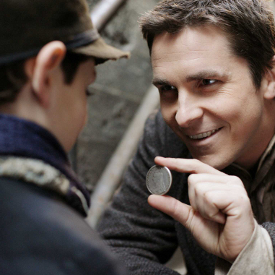
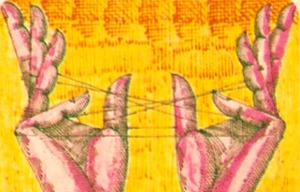

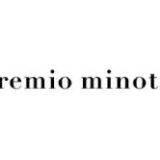
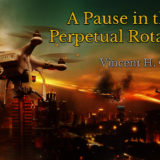
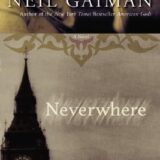
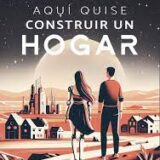

1 Comment